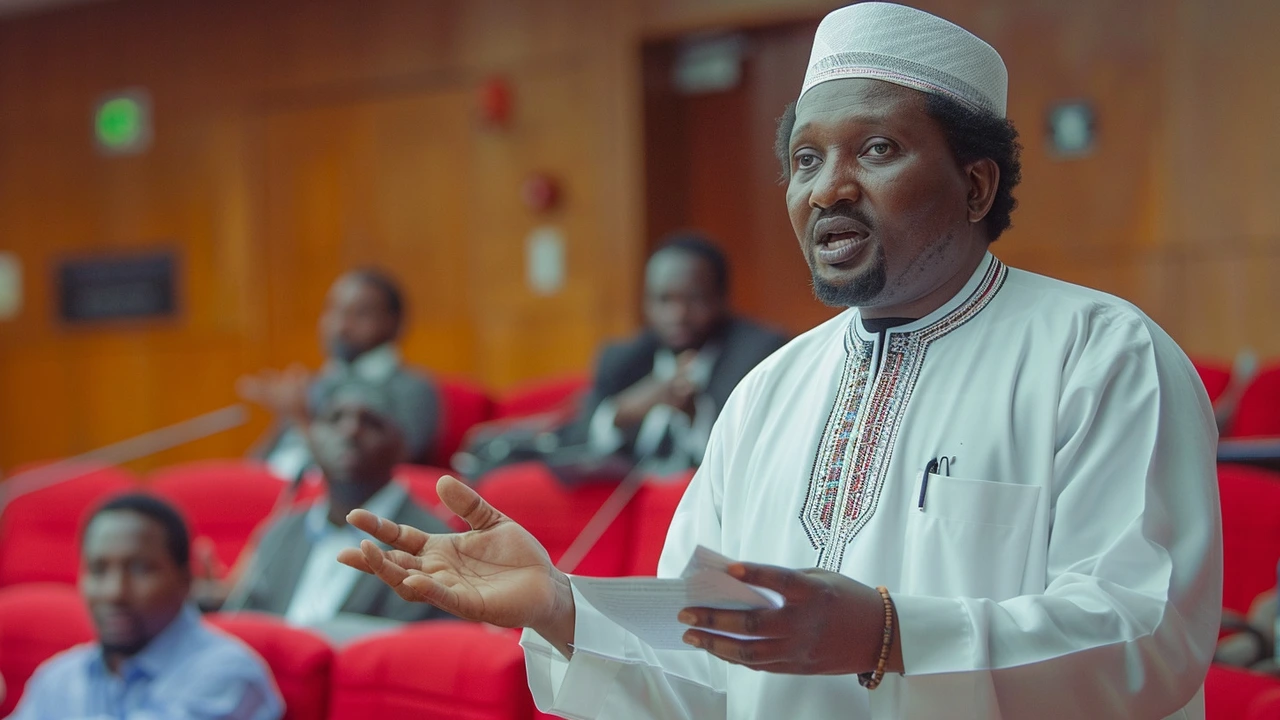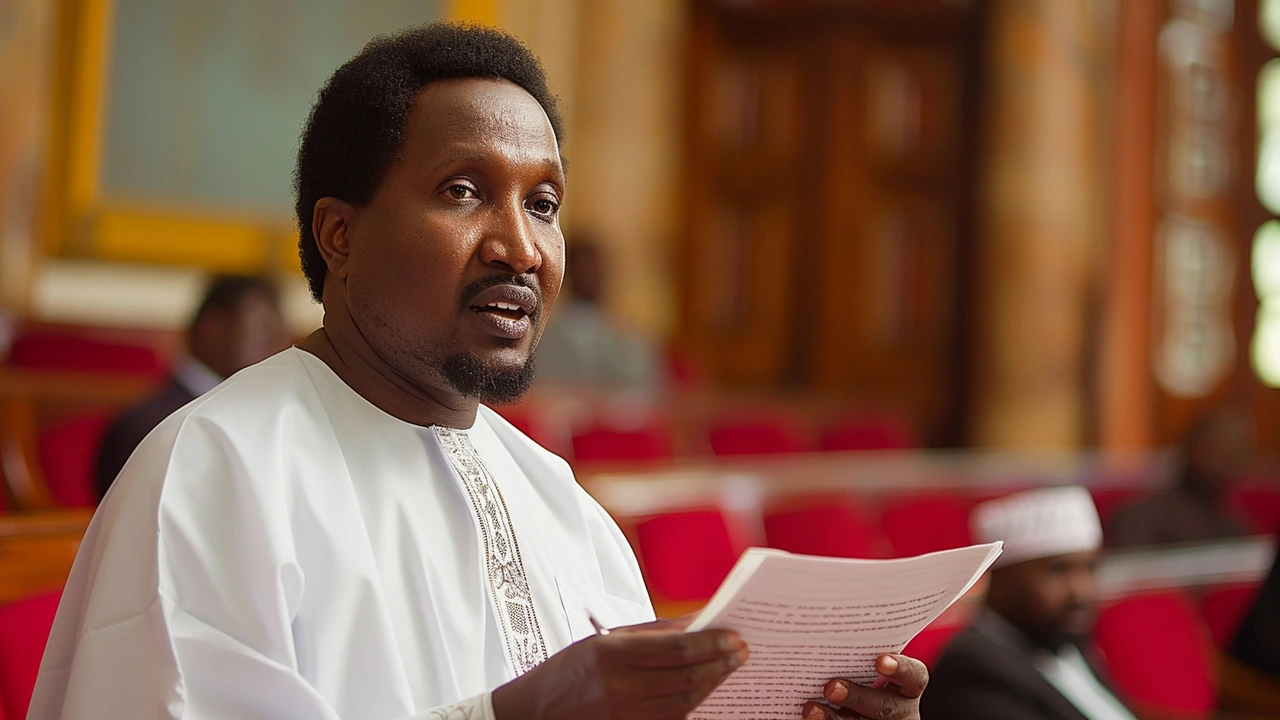Understanding the Zonal Development Commissions
Amid rising concerns and speculations, Senator Jibrin Barau has stepped forward to clarify the intentions behind the recent establishment of zonal development commissions. Serving as the Deputy President of the Senate and Chairman of the Senate Committee on Constitution Review, Senator Barau emphasized that these bodies are designed to solve distinct regional problems, not to reinstate a regional government system. The North West Development Commission, North Central Development Commission, South East Development Commission, and South West Development Commission are all at various legislative stages. Meanwhile, the Niger Delta Development Commission and the North East Development Commission are already fully operational after receiving presidential approval.
Senator Barau pointed out that the commissioning of these bodies stems from a genuine need to address challenges specific to each zone. The North East, for instance, has been battling the insidious impact of Boko Haram, while the Niger Delta faces its own unique set of environmental and social issues. These commissions are expected to channel resources, implement developmental projects, and provide structured responses to the region-specific needs of their respective areas.
Addressing Concerns of Regionalism
One of the critical concerns among Nigerians is the potential return to a regional form of government. Senator Barau was quick to dispel these fears, reassuring citizens that the commissions do not signal a shift back to regionalism. The purpose of these developments is about fostering regional growth within the frame of a united national government rather than fracturing the country into smaller, independent regions.
Barau elaborated that Nigeria’s 1999 Constitution remains the bedrock of governance and that these commissions must operate within the ambit of this directive. The Senator emphasized that there would be no deviation from the current federal structure, even as the Senate Committee on Constitution Review undertakes thorough amendments to reflect the wishes and aspirations of Nigerians nationwide.
Comprehensive Constitutional Review
Following the establishment of these zonal commissions, the process for reviewing the 1999 constitution has begun in earnest. The Senate Committee on Constitution Review has been holding public hearings and receiving memoranda from various societal segments. The goal is to ensure that the amendments reflect the will and needs of the Nigerian populace, allowing for a more inclusive and functional government system.
The committee is tasked with evaluating and aggregating the presentations received, considering numerous proposals that aim to address the nation’s pressing issues. Among the floated propositions is the possibility of adopting a parliamentary system of government, showcasing the Senate’s willingness to explore diverse forms of governance.
Justification for the North West Development Commission
Senator Barau highlighted the dire need for the North West Development Commission, a region plagued by relentless attacks from Boko Haram, bandits, and other violent insurgencies. Once known as the nation’s food basket, the North West has witnessed significant disruption in agricultural activities and overall livelihoods. Evident from this backdrop is the necessity for a dedicated body to rebuild, rehabilitate, and boost development within the region.
The Commission is expected to focus on reconstructing infrastructure, supporting displaced populations, and restoring economic activities by investing in agriculture and education. A structured approach led by the Commission could provide the much-needed stability and growth in the North West region, offering a glimmer of hope to its beleaguered communities.

Venues for Public Participation
It is noteworthy that the Senate, through public hearings and memoranda, is inviting the active participation of ordinary citizens, civil society groups, professionals, and other stakeholders. By democratizing this process, the Committee aims to ensure that all voices are heard and incorporated into the reformed legislative framework.
Senator Barau urged citizens to engage in the ongoing constitutional review process actively. The outcomes, he assured, will be reflective of the collective voice and aspirations of Nigerians. This open call for participation invites a richer diversity of opinions and proposals, enhancing the legitimacy and inclusiveness of the final amendments.
Anticipating Outcomes
While the legislative process unfolds, there is cautious optimism among Nigerians about the potential benefits of these zonal commissions. If successful, these bodies could present a model for targeted regional development that bridges the gap between disjointed local efforts and broader national policies.
That said, detailed planning, transparent governance, and rigorous oversight are essential to ensure that these commissions fulfill their mandates. The credibility and functionality of these bodies will be continuously scrutinized, requiring consistent performance to alleviate any residual doubts about their true intentions.
Ultimately, these commissions stand to transform the landscape of regional development in Nigeria. As they take root and begin executing their designated roles, there is hope that they will alleviate some of the pressing challenges faced by their communities, fostering a more balanced national growth trajectory.


Comments
Crystal Novotny
Regional commissions sound like a bureaucratic band‑aid.
June 1, 2024 at 19:34
Reagan Traphagen
The Senate’s sudden enthusiasm for zonal bodies reeks of a power grab, a classic move to fragment national unity. They claim it’s about development, yet they conveniently ignore the lack of transparent funding mechanisms. Citizens deserve more than glossy press releases; they need audited budgets and measurable outcomes. Without strict oversight, these commissions risk becoming money‑pockets for the politically connected.
June 3, 2024 at 15:20
mark sweeney
i get the fear but the real prob is that the commisions will just duplicate existing agencies. this isnt a new solution its a rebrand of the same old politics. the north west lags because of corruption not because it lacks a commission.
June 5, 2024 at 11:06
randy mcgrath
Interesting read, especially the part about the North West’s agricultural potential.
June 7, 2024 at 06:52
Frankie Mobley
The idea of targeted development can work if the funds actually reach the farmers and schools. It’s important to set clear milestones and involve local leaders.
June 9, 2024 at 02:38
ashli john
yeah its a good start but we need to keep pressure on them so they dont just talk the talk.
June 10, 2024 at 22:24
Kim Chase
Absolutely, community oversight panels could help bridge that gap. Inclusive planning ensures everyone feels heard.
June 12, 2024 at 18:10
David Werner
What they don’t tell you is that these commissions are a front for foreign interests looking to control resources. The constitution review is just a smokescreen.
June 14, 2024 at 13:56
Paul KEIL
From a structural standpoint, the zoning approach optimizes resource allocation; however, without rigorous KPI integration, efficacy remains speculative.
June 16, 2024 at 09:41
Horace Wormely
There’s a missing comma after “however” and the phrase “remains speculative” could be clearer. Precision matters.
June 18, 2024 at 05:27
christine mae cotejo
The proposal for zonal development commissions is undeniably ambitious, and it raises a cascade of considerations that merit deep reflection. First, the historical context of regional disparities in Nigeria cannot be ignored; long‑standing inequities have fueled tension and mistrust. Second, the operational design of these bodies will determine whether they become catalysts for change or merely administrative extensions of the status quo. Third, funding mechanisms must be transparent, with clear audit trails to prevent the diversion of resources. Fourth, stakeholder engagement is crucial-grassroots input should shape priorities rather than being a token gesture. Fifth, the legal framework must delineate powers to avoid jurisdictional overlaps with existing ministries. Sixth, monitoring and evaluation protocols need to be built in from day one, with measurable indicators tied to concrete outcomes. Seventh, capacity building at the local level will ensure that the commissions are not hamstrung by a lack of expertise. Eighth, communication strategies should convey progress to the public, fostering trust. Ninth, the interplay with the constitutional review process presents both opportunities and risks, as amendments could either empower or constrain these commissions. Tenth, potential political resistance from factions wary of decentralization must be addressed through dialogue. Eleventh, lessons from other federal systems-such as Germany’s Länder or India’s state ministries-can offer valuable insights. Twelfth, the timeline for implementation should be realistic, balancing urgency with feasibility. Thirteenth, contingency plans are essential to navigate unforeseen challenges like security crises. Fourteenth, the environmental impact of development projects should be assessed to safeguard ecosystems. Finally, sustained commitment from successive governments will determine the longevity and success of the commissions, turning the initial optimism into lasting transformation.
June 20, 2024 at 01:13
Douglas Gnesda
Great points! I’d add that public hearings need to be widely advertised so more citizens can weigh in.
June 21, 2024 at 20:59
Abhijit Pimpale
Indeed, outreach is essential. Without it, the process is just a formality.
June 23, 2024 at 16:45
Eric DE FONDAUMIERE
Totally agree! maybe they could use radio ads and community boards. typos happen but the idea is solid.
June 25, 2024 at 12:31
Pauline Herrin
While enthusiasm is commendable, the execution must be grounded in constitutional fidelity and fiscal responsibility.
June 27, 2024 at 08:17
pradeep kumar
Let’s not forget that hidden agendas often surface once power structures are altered. Vigilance is key.
June 29, 2024 at 04:03
love monster
True, staying alert and keeping the conversation alive will help ensure these commissions serve the people.
June 30, 2024 at 23:49
Christian Barthelt
All this talk about development sounds good on paper, but history shows such initiatives frequently stall.
July 2, 2024 at 19:34